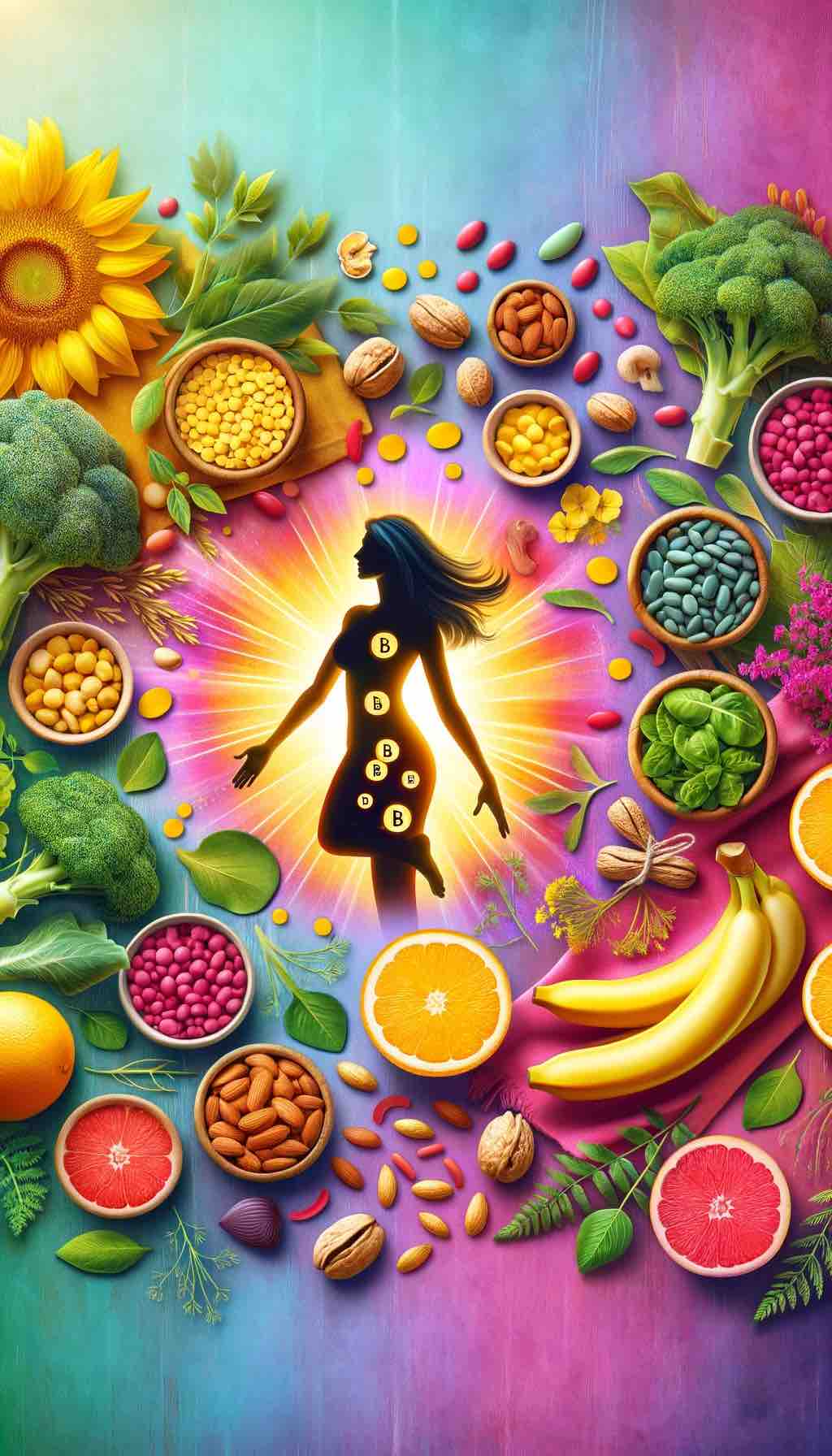
Introduction
Are you navigating the ever-changing seas of pregnancy nutrition, wondering if you can still savor the sweet and tangy delight of plums? You’re not alone! Expecting mothers often find themselves in a whirlwind of dietary dos and don’ts, questioning every food choice. But here’s some juicy news: plums, those succulent summer gems, might just be the unsung heroes of your pregnancy diet. Rich in vital nutrients and bursting with flavor, plums are more than just a palatable pleasure during these crucial nine months. In this comprehensive guide, we’ll dive into the heart of why these fruits are not only safe but incredibly beneficial for you and your growing baby. From combating pregnancy blues with a burst of natural sweetness to packing a punch with essential vitamins, we’re peeling back the layers on everything ‘plum’ in the realm of pregnancy nutrition. So, let’s embark on this fruity adventure together, where we unravel the myths, savor the facts, and discover the plum-perfect balance for your prenatal diet!
The Nutritional Powerhouse of Plums
As you cradle your growing bump, know that the humble plum is more than just a sweet treat. It’s a nutritional powerhouse, quietly waiting to be a part of your pregnancy journey. Plums are like nature’s own prenatal supplement – packed with essential nutrients that play a vital role in your baby’s growth and your well-being. Let’s take a closer look:
- Vitamin A & C – The Immunity Boosters: These vitamins are not just good for you; they are crucial for the healthy development of your baby. Vitamin A aids in fetal growth and vision development, while Vitamin C strengthens both your immune systems.
- Potassium – The Balancing Act: High in potassium, plums help maintain fluid balance, an essential aspect during pregnancy to avoid issues like swelling and hypertension.
- Fiber – The Digestive Hero: If pregnancy has slowed down your digestive system, plums come to the rescue with their high fiber content, easing constipation and keeping your gut healthy.
- Antioxidants – The Cellular Protectors: The antioxidants in plums fight off free radicals, protecting both you and your baby from cellular damage and boosting overall health.
- Low in Calories – The Guilt-Free Snack: Craving something sweet but mindful of your calorie intake? Plums are your go-to option, offering natural sweetness without the guilt of excessive calorie consumption.
Now that we’ve unwrapped the nutritional tapestry of plums, let’s explore how these benefits translate into a happier, healthier pregnancy.
The Spectacular Benefits of Plums During Pregnancy
Embarking on the plum journey through your pregnancy unveils a spectrum of benefits, each contributing to a wholesome prenatal experience. Let’s delve into these benefits, showing you why plums should be a star in your pregnancy diet.
1. A Natural Remedy for Pregnancy Constipation:
- The Fiber Factor: Plums, especially when dried into prunes, are fiber-rich, acting as natural laxatives. This helps alleviate one of the most common yet uncomfortable pregnancy symptoms – constipation. Incorporating plums into your diet can ease your digestive woes, ensuring a smoother, more comfortable pregnancy journey.
- Hydration Helper: Alongside fiber, the water content in plums aids in digestion and prevents dehydration, another key factor in managing constipation.
2. Regulating Blood Sugar – A Sweet Balance:
- Low Glycemic Index: Despite their natural sweetness, plums have a low glycemic index. This means they release sugar slowly into your bloodstream, helping you maintain stable blood sugar levels – a crucial factor for a healthy pregnancy, especially for those battling gestational diabetes.
- Nutrient-Dense Snacking: Opting for plums as a snack can prevent the temptation of less healthy sugary treats, contributing to overall better blood sugar control.
3. Bone Health for Two:
- Rich in Potassium and Vitamin K: Plums are rich in nutrients like potassium and vitamin K, both essential for bone health. They play a role in bone development and maintenance, ensuring both you and your baby have strong bones throughout your pregnancy.
- Preventing Preterm Labor: Studies suggest that adequate potassium intake is linked to a reduced risk of preterm labor. By adding plums to your diet, you’re not just nurturing your bones, but also potentially contributing to a full-term, healthy pregnancy.
4. Boosting Immunity and Overall Health:
- Vitamins A and C – The Immune Warriors: The high levels of vitamins A and C in plums boost your immune system, which is especially important during pregnancy when your immune system is naturally suppressed.
- Antioxidants Galore: The antioxidants present in plums protect against cellular damage and inflammation, promoting overall health and well-being for both mother and child.
5. Addressing Iron Deficiency and Anemia:
- Iron Absorption: While plums aren’t high in iron, their vitamin C content aids in the absorption of iron from other dietary sources. This is crucial, as iron deficiency is a common concern in pregnancy, leading to anemia.
- Anemia Prevention: Regular consumption of plums can thus indirectly help prevent anemia, a condition that can cause fatigue and complications in pregnancy.
6. A Natural Mood Enhancer:
- Sweet Comfort: The natural sweetness of plums can uplift your mood, providing a healthy way to satisfy cravings and combat pregnancy-related mood swings.
- Nutrient-Powered Energy Boost: The combination of natural sugars and essential nutrients in plums provides a healthy energy boost, keeping tiredness at bay.
In the next section, we’ll address some key safety considerations and recommended consumption guidelines to ensure you reap all these benefits without any worries.
Safety Considerations and Consumption Guidelines
While plums are a nutritious and beneficial addition to your pregnancy diet, it’s crucial to approach their consumption with mindfulness and balance. Let’s navigate through some key safety considerations and guidelines to help you enjoy plums safely during your pregnancy.
1. Moderation is Key:
- Balanced Consumption: While plums are healthy, excessive consumption can lead to issues like bloating or diarrhea due to their high fiber content. Aim for a balanced diet where plums complement other nutritional needs.
- Serving Recommendations: As a general guideline, consider incorporating about two plums per day into your diet. This aligns with the recommended daily intake of five to seven servings of fruits and vegetables.
2. Organic and Fresh – The Ideal Choice:
- Pesticide Concerns: Whenever possible, opt for organic plums to reduce exposure to pesticides, which can be a concern in pregnancy. If organic isn’t available, ensure you wash your plums thoroughly.
- Freshness Matters: Fresh plums are preferable to ensure maximum nutrient retention, though dried plums (prunes) are also beneficial, especially for constipation relief.
3. Watch Out for Allergies and Intolerances:
- Individual Sensitivities: If you have a history of fruit allergies or specific intolerances, consult your doctor before adding plums to your diet.
- Body’s Response: Pay attention to how your body reacts after consuming plums. Any unusual symptoms should be discussed with your healthcare provider.
4. Special Considerations for Preexisting Conditions:
- Kidney Stones and Sugar Levels: If you have a history of kidney stones, be cautious with plum consumption, as they contain oxalates that can contribute to stone formation. Additionally, while plums have a low glycemic index, monitoring your blood sugar levels is advisable if you have gestational diabetes.
5. Dried Plums (Prunes) – A Note of Caution:
- Sugar Concentration: Remember that drying fruits concentrates their sugars. While prunes are excellent for digestion, they are also higher in sugars, so moderation is essential.
- Hydration: If you include prunes in your diet, increase your water intake to aid in their laxative effect and prevent dehydration.
6. Preparation and Consumption Tips:
- Creative Inclusions: Incorporate plums into your diet in various forms – as part of fruit salads, blended into smoothies, or as a natural sweetener in oatmeal.
- Avoiding Processed Plum Products: Steer clear of overly processed plum products like jams or juices with added sugars, as these can spike your blood sugar levels and provide fewer nutritional benefits.
Embracing plums during pregnancy can be a delightful and healthful experience when done thoughtfully. With these guidelines in mind, you can safely incorporate this nutrient-dense fruit into your diet, benefiting from its myriad of health advantages. Up next, we’ll dive into some frequently asked questions to clear up any lingering doubts or curiosities you might have about plums and pregnancy.
Frequently Asked Questions (FAQs) About Plums During Pregnancy
“In this section, we address some of the most common questions you might have about including plums in your pregnancy diet. These answers are designed to give you quick, clear insights into your plum-related queries.
1. Can I Eat Plums During My First Trimester?
- Answer: Absolutely! Plums are safe and beneficial throughout pregnancy, including the first trimester. They provide essential nutrients and can help combat early pregnancy symptoms like constipation and fatigue.
2. Are Dried Plums (Prunes) As Beneficial As Fresh Plums?
- Answer: Yes, prunes offer similar benefits to fresh plums, especially in terms of fiber content. They are particularly effective for relieving constipation, a common issue in pregnancy. Just be mindful of their higher sugar content and consume in moderation.
3. Can Eating Plums Help Prevent Gestational Diabetes?
- Answer: While plums are low in the glycemic index and can help in maintaining stable blood sugar levels, they are not a standalone solution for preventing gestational diabetes. A balanced diet and regular medical check-ups are crucial for managing this condition.
4. How Many Plums Can I Safely Eat in a Day During Pregnancy?
- Answer: It’s generally safe to eat about two plums per day. This quantity provides you with their nutritional benefits without overdoing it, considering their high fiber and sugar content.
5. Are There Any Risks Associated with Eating Plums During Pregnancy?
- Answer: For most women, plums are a safe and healthy choice. However, if you have specific health conditions like a tendency for kidney stones or gestational diabetes, consult your doctor for personalized advice on plum consumption.
6. Can Plums Help With Pregnancy-Related Anemia?
- Answer: Plums indirectly support the fight against anemia by aiding the absorption of iron from other dietary sources, thanks to their Vitamin C content. However, they should be part of a diet that includes iron-rich foods.
Conclusion: Embracing Plums in Your Pregnancy Journey
As we draw our guide to a close, let’s recap the juicy benefits of including plums in your pregnancy diet. These delightful fruits are not only a source of natural sweetness but also a treasure trove of essential nutrients that support both your health and the development of your little one. From aiding digestion to boosting immunity, and even playing a role in preventing certain pregnancy-related complications, plums offer a spectrum of benefits that are hard to overlook.
However, as with all things in pregnancy, the key is balance and mindfulness. Moderation in consumption, awareness of your body’s responses, and consideration for any preexisting health conditions are paramount. Plums can be a fantastic addition to your diet, but they are part of a bigger picture of comprehensive prenatal nutrition.
So, go ahead and enjoy that burst of plum goodness – be it in your morning smoothie, as a midday snack, or as part of a colorful fruit salad. Let these nutritious fruits bring flavor and health to your pregnancy table, making your journey to motherhood even more enjoyable and vibrant.
Remember, this guide is a starting point. For personalized advice and dietary planning, always consult with your healthcare provider. They can provide guidance tailored specifically to you and your baby’s needs.
Thank you for joining us on this exploration of plums during pregnancy. May your days be as sweet and fulfilling as a ripe, juicy plum!












